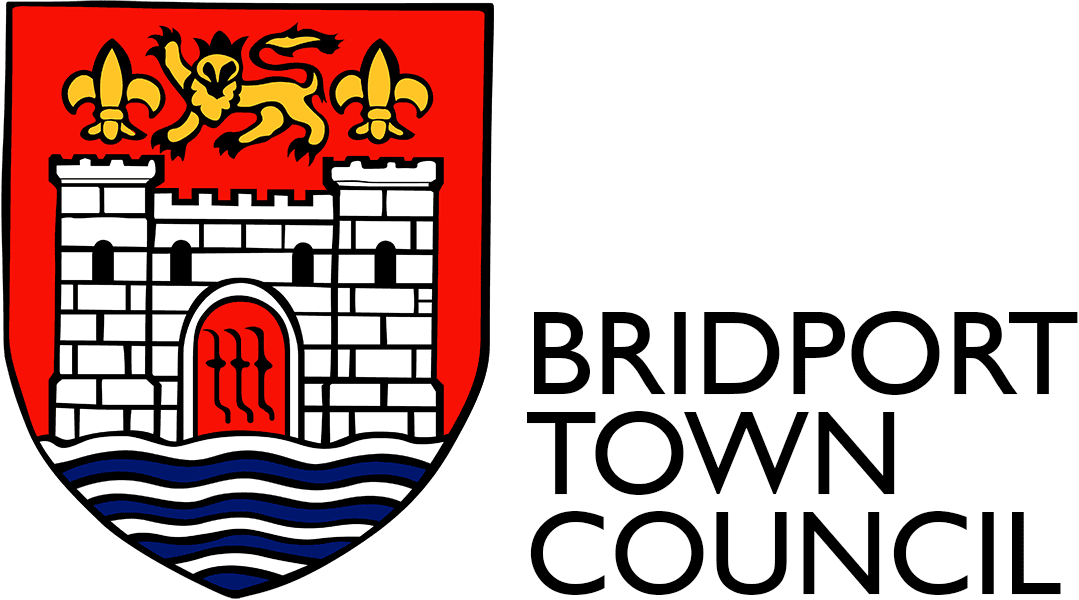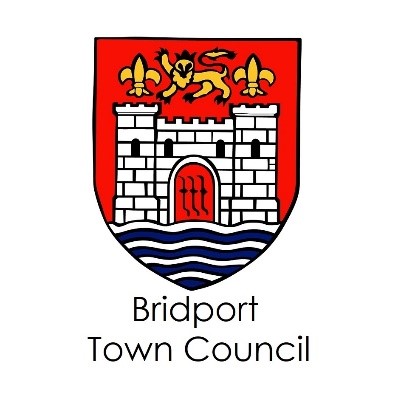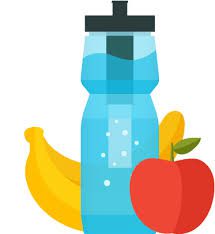
Food and Water
Food
I was privileged to grow up on a farm in the beautiful Vale of Belvoir on the Nottinghamshire Leicestershire boarder. We were beef farmers winning supreme championship prizes at all the prestigious national agricultural shows.
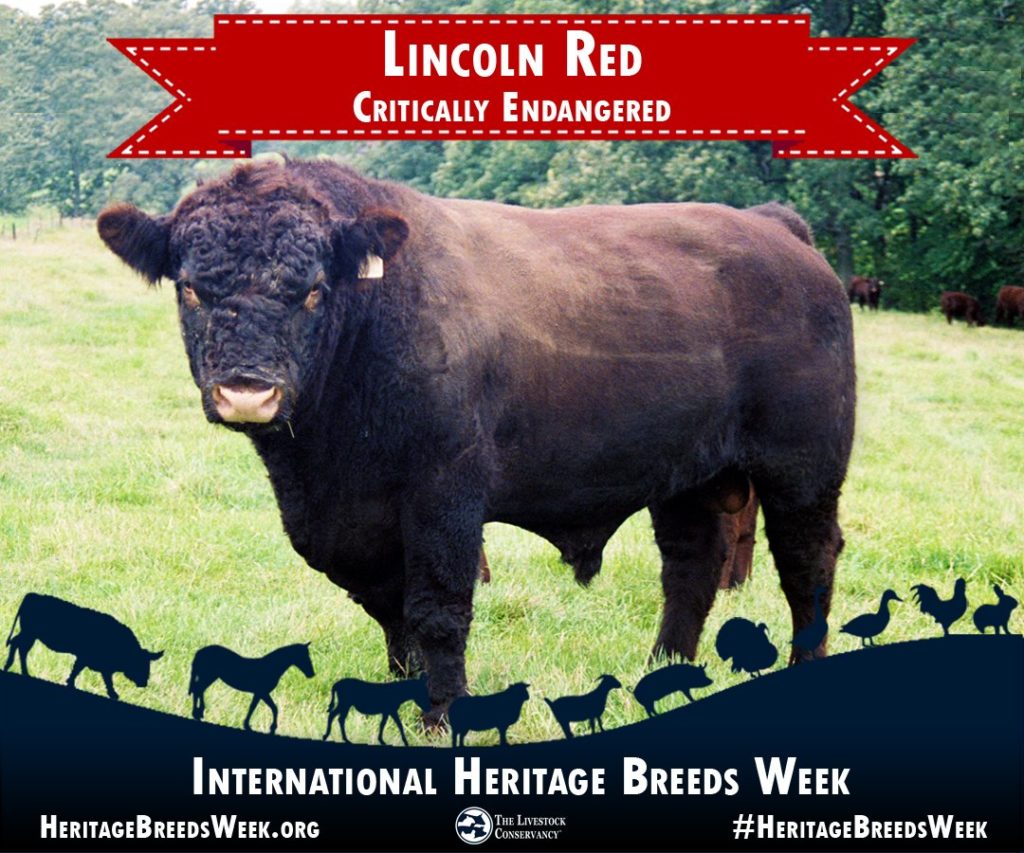
Our prize winning Lincoln Red bulls were much sought after not only in this country but were also exported as far afield as Australia, Argentina, USA, and even the USSR. Sadly the breed is today on the endangered species list.
In those days, the nineteen fifties and sixties, the fields were still awash with wild flowers, hummed with the buzz of insects, the swooping of swallows, the singing of skylarks, cuckoos and in the evening the blackbirds’ glorious serenade. They were also alive with leaping hares and rabbits and of course predatory foxes. We even used a horse and cart for many of the tasks associated with the cattle.
The soil in which the grass to make hay, grain and other crops we grew to supplement the cattle’s winter feed was enriched by their manure. It was a method of farming that had changed little for hundreds of years. When my father retired from the farm in 1971 and we left our tied cottage to live in the village, it was the end of an era in so many ways.
On Thursday evening my wife and I downloaded and watched a film made by local film maker Robert Golden. Two years in the making, at one level it is a beautifully shot and evocative homage to rural Dorset and Robert’s home town, Bridport. Many of the magnificent images on screen are at times truly breathtaking. But overriding the beautiful imagery is a deeply worrying analysis of the impact of current intensive farming practices. This is interlaced with a clear vision of a kinder way in which to produce our food in greater harmony with the natural world.
The title of the film is THIS GOOD EARTH – farming, food and global warming. It brings together farmers, scientists, ecologists and expert academics to contest the disturbing influence that agrochemical giants exert over the farming industry and warns that the way we currently grow our food could effectively kill us unless huge changes are made in how we treat our land and other species.

If we are to return to the environmentally friendly, wildlife rich method of farming that I grew up with, this film not only shows the way but provides us with irrefutable evidence that it is essential that we do so.
I have borrowed the following statement from Robert Golden’s website and could not agree more:
As a new and updated re-sounding of The Soil Association’s original alarm at its founding in 1946, “that there is a direct connection between farming practice and plant, animal, human and environmental health”,
This Good Earth is essential viewing for farmers, consumers, ecologists and those concerned with human rights, as well as providing a key study tool for schools, universities and all of those who share the deep concerns of how and what we feed ourselves. That means you.
The trailer below gives a good introduction to the film. Once you have watched this taster I encourage you to see the whole film and enjoy the stunning photography but more importantly heed of the words of wisdom being spoken by those who really know what is happening and how to change it for the better.
Water
What is happening in Bucky Doo Square?
It is work to enable the installation of the water fountain.
Why a water fountain I hear you ask?
The water fountain is part of an initiative led by Wessex Water to reduce the negative impacts on UK environments and species by reducing the use of non-reusable plastic drinks bottles. By refilling your own water bottle you are reducing your carbon footprint and supporting the fight against climate change and global warming.
I know that there are already a number of places in the town where you can have your water bottles and hot drinks containers refilled and like many of our visitors you have made increasing use of them. If you are not sure which ones look out for the sign in the window.
With the installation of the fountain in Bucky Doo Square, refilling your water bottle becomes even easier. The water, freely available from the fountain should mean that the purchase of water in plastic bottles becomes history. We can only hope.
Who installed the water fountain?
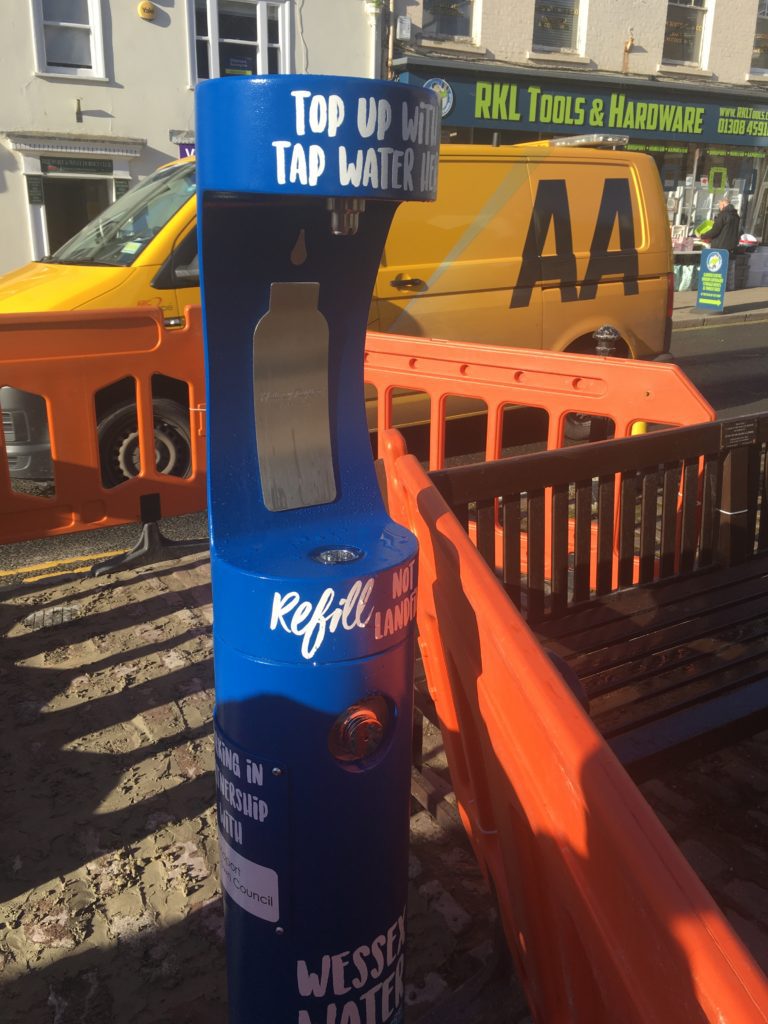
The groundworks for the new water fountain have been carried out by our own Town Council staff and the connections and commissioning by Wessex Water staff. Well done to all concerned – it is looking great and I can’t wait to use it.
When will we be able to use the fountain?
The fountain will be available for use as soon as the restrictions around the Covid-19 virus enable it to do so. Watch this space.
What is wrong with buying plastic bottled water?
There’s a lot of information circulating about the plastic pollution epidemic, specifically, disposable single-use plastics with alarming statistics and new studies surfacing every day. This why I am spearheading the Plastic Free Bridport campaign during my term as Mayor.
It should come as no surprise that one of the most pressing environmental issues we face is plastic pollution. In 2016, we consumed 400 billion plastic water bottles around the globe, equivalent to 1 million plastic water bottles per minute, or 20,000 bottles per second. Approximately only 9% of all plastic gets recycled, while the remaining 91% ends up in landfills or leaches into our oceans. In the US alone, they go through 50 billion plastic bottles per year or 100 million plastic water bottles per day.
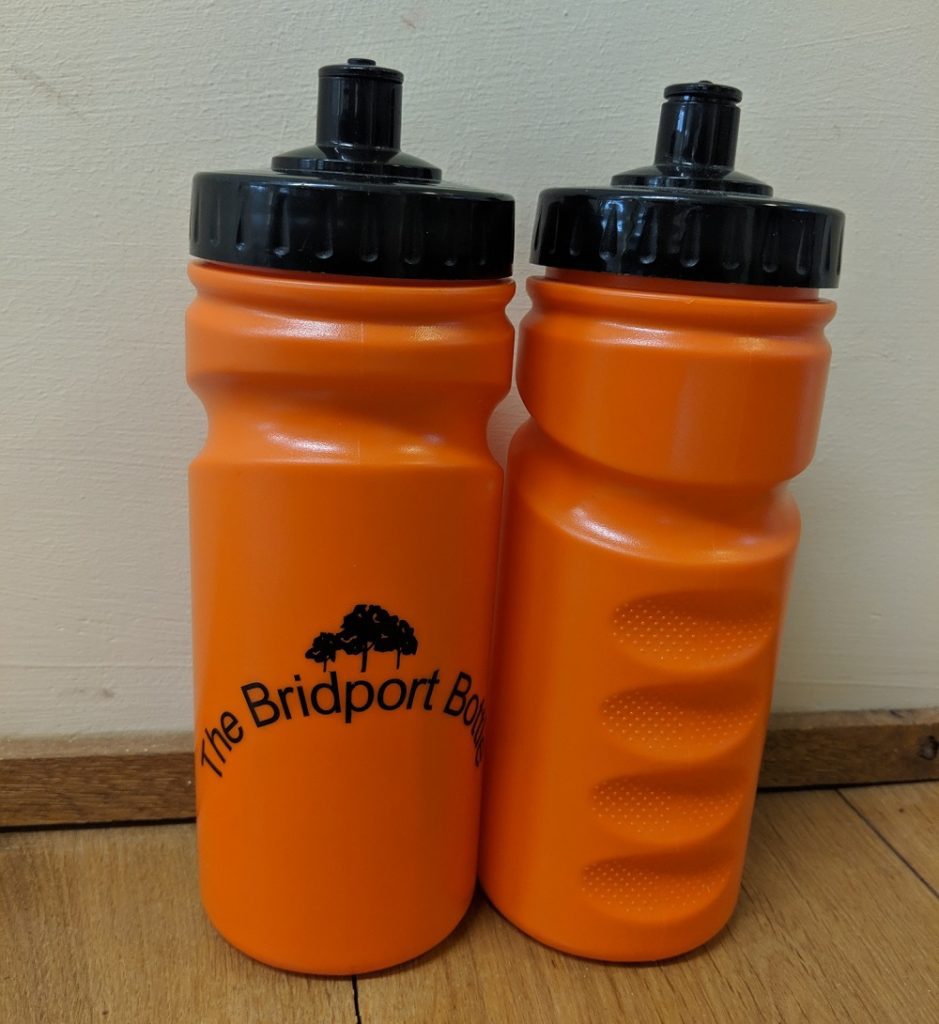
If you don’t already own a refillable water bottle why not treat yourself to a ‘Bridport Bottle’ available from the TIC.
It can take over 400 years for plastic water bottles to biodegrade. Microplastics (tiny plastic particles) breakdown and embed themselves in our food chain as they are ingested by marine life-threatening larger ecosystems and consequently, human health. Though plastic bottles are convenient and sometimes necessary for clean water in rural areas, lack of government oversight has lead to the proliferation of plastic disposables and it has become an industry that has produced over 8.3 billion metric tons of plastic in the last 6 decades, of which 6.3 billion tons has become plastic waste.
Next time you think about buying a bottle of water ask yourself; Why do we need to transport water across this country and from as far away as Fiji and sell it in single use plastic bottles when we have the highest quality of drinking water in the world already available at our kitchen tap and now in Bucky Doo Square?
